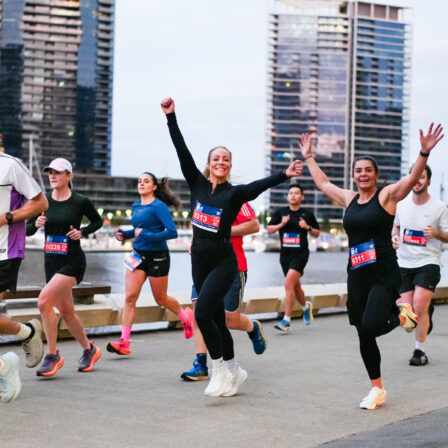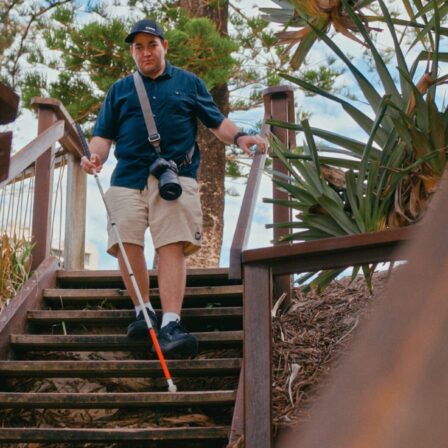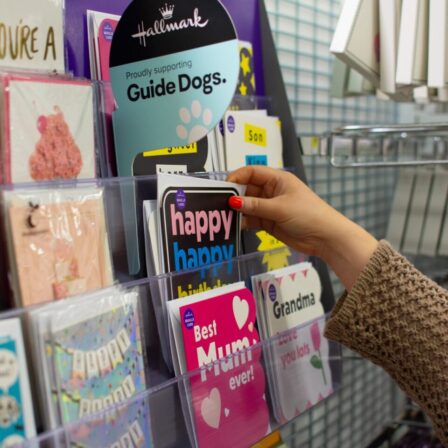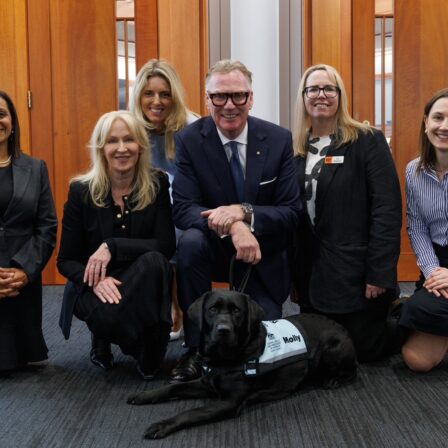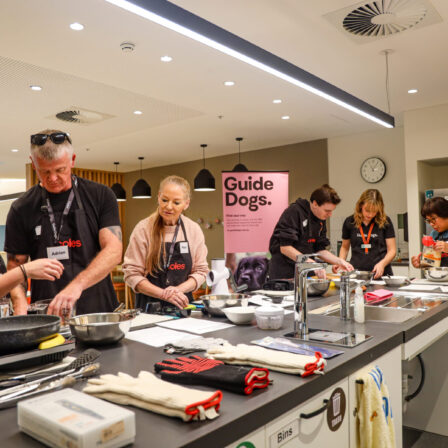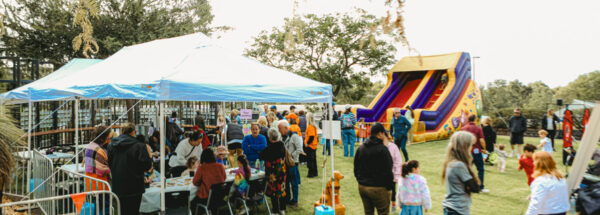News
Blind and low vision parenting tips
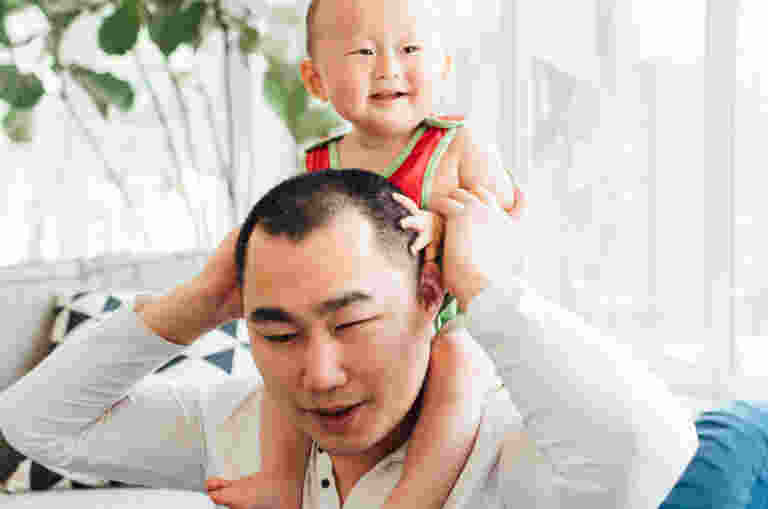
New parenthood opens up a whole new world of experiences, emotions and challenges – from excitement to anxiety, parents feel it all. For parents with low vision or blindness, this can present other obstacles, so a member of our team with low vision who’s just welcomed his first child has prepared some tips to help you along your journey.
“Becoming a new parent has been such a wonderful experience. Every moment is so precious and rewarding. I have learned so much and I would like to share some helpful tips for new parents with low vision.”
Top tips for parents with low vision or blindness
Working together
Your parenting partnership is so special. Working as a team allows each parent to share the bonding experience, learn from other and offer support as you both learn. Tackling care tasks together is extremely rewarding, promoting opportunities to identify your strengths to look after activities independently, allowing you to save time, and build your confidence. It also allows you both to support each other and help navigate any challenges encountered.
Learning from others
There are so many wonderful resources that are provided for new parents. When you leave hospital, it can be a little daunting. Your free copy of My Health, Learning and Development Record, commonly known as the ‘green book’ includes many online and phone resources such as the Raising Children Network, and the confidential, 24-hour Maternal and Child Health (MCH) Service where families with children from birth to school age can speak to an MCH nurse for free.
Face-to-face support
The residential program at the Queen Elizabeth Centre (QEC) offers intensive support to parents with children aged from newborn until their fourth birthday. You can participate in up to a 4-night stay designed to give support across all areas of parenting, from sleep and settling, feeding difficulties, understanding behaviour challenges and parent-to-child bonding. Discover their opportunities for support on their website.
And of course, the family ‘village’ – if you have family living nearby, they can offer a lot of support.
Building your skills
If you struggle at your first attempt, then the next one, don’t be discouraged. Everything is new and you will find your way with it. Remember to practice, practice, practice! Give things a go and make adjustments along the way. You will master it before you know it.
Tools
Products that have been useful in my experience have included:
- CPAL-brand bottles: These bottles have a ridge to help guide you in positioning the bottle during feeding (point the ridge in line with baby’s nose).
- Bottle preparation station: The ‘Baby Brezza’ can make bottle prep quick and easy. Simply fill the relevant compartments with water and formula, then adjust the setting to the desired quantity of liquid (60m, 90ml, 120ml).
- Magnification: Using your magnification devices or apps may help you to view how much formula is in a bottle before and after feeding (depending on your remaining vision).
- Storage: Setting up safe spaces for play, feeding and changing is really important. Chat with your OT for advice on having items that you need nearby, at a safe height and not a tripping hazard.
- Equipment: Having baby furniture that is mobile (on wheels) and height adjustable, can help you to be close to your baby and provide care safely with reduced risk of pain/injury.
For Clients wanting to explore personalised support on their parenthood journey, reach out to your OT to book an appointment.
New to Guide Dogs Victoria? Request a service online and start receiving support customised to your needs and lifestyle.


